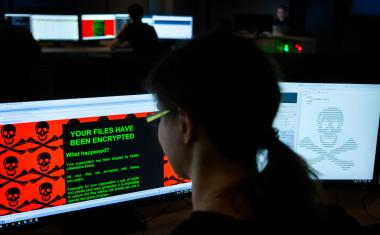Apollo fire detection technology: protection for Plymouth’s new landmark
Apollo fire detection technology: protection for Plymouth's new landmark. Apollo fire detection technology has been provided to protect a new and iconic addition to the skyline in ...
Apollo fire detection technology: protection for Plymouth's new landmark. Apollo fire detection technology has been provided to protect a new and iconic addition to the skyline in Plymouth, Devon. The £ 36 million Roland Levinsky Building was designed by leading Danish architects Henning Larsens Tegnestue for client University of Plymouth. The fire detection system was supplied and commissioned by Multi-Alarm Systems of Bristol and installed by Mitie Engineering Services (Peninsula).
Commenting on the contract, Apollo’s regional Sales Manager Phil Walford said: “Apollo prides itself on being at the cutting edge of fire detection technology and providing world class solutions for its clients. It’s fantastic to be able to contribute to this development because it is the result of international collaboration and it provides such a modern addition to Plymouth’s city centre.”
Campus in the City Centre
The Roland Levinsky Building is part of University of Pymouth’s strategy to concentrate its activities on a modern urban campus in the city centre. The building is home to the Faculty of Arts as well as open to the public through its Peninsula Arts programme of artistic and cultural events. Facilities include lecture theatres, a cinema, café and public art gallery as well as teaching accommodation and office space, arranged around a four storey atrium.
The specification called for a fire detection system designed to L2 standards. Multi-Alarm Systems supplied equipment based on Apollo’s Discovery intelligent fire detection technology and Multi Ifax control panels to meet these requirements.
Barrie Dunn, Senior Technical Engineer, Multi-Alarm Systems, comments: “University of Plymouth is a longstanding customer and they appreciate Apollo fire detection technology for three very good reasons. Firstly, the company uses an open protocol, which gives flexibility in sourcing products. Secondly, the products are forwards and backwards compatible, which makes future modifications and maintenance much easier. Thirdly, they’ve used Apollo before in other buildings around the campus and they know how reliable they are.”
Interfacing with Security Systems
The Roland Levinsky fire system includes around 460 of the company’s Discovery devices in all and interfaces with the building’s UPS and door access systems as well as the sound and light systems in the theatre. The fire system also includes two ‘Vesda’ high sensitivity smoke detector units and a pager system that alerts staff and deaf students in the event of an emergency.
Special requirements included black fire detectors for installation in the theatre and visualonly alarm devices in the sound recording studio. The system is controlled via two Multi Ifax bespoke panels, which were specially made with a stainless steel finish and connected to make a seamless peer-to-peer high integrity network, which is particularly suited for larger building complexes and campus-style environments.
Contact:
Apollo Fire Detectors Ltd,
Havant, United Kingdom
Tel.: +44 2392 412
Fax: +44 2392 492 754
rowland.davies@apollo-fire.co.uk
www.apollo-fire.co.uk












